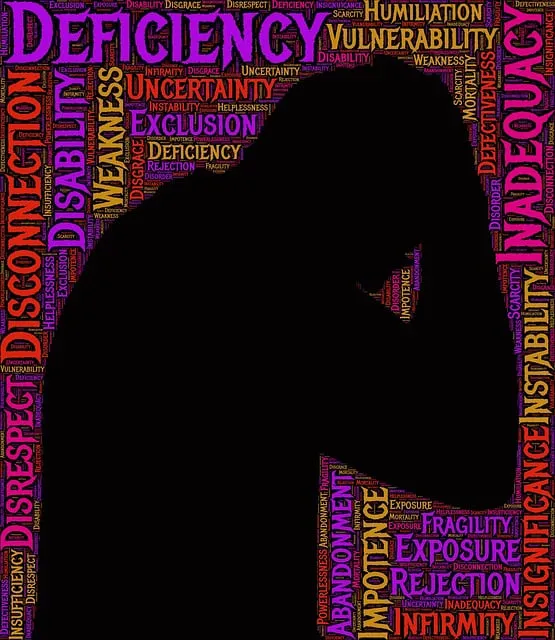Kaiser Permanente's mental health centers in Lone Tree employ effective public awareness campaigns, leveraging local resident feedback from reviews to understand community needs. By engaging with individuals through sharing recovery stories, promoting self-care, and using creative communication, these centers combat stigma, empower emotional well-being, and foster trust. Partnerships with local organizations amplify impact, and data-driven evaluation ensures tailored initiatives that resonate with diverse audiences, as reflected in positive Kaiser Permanente mental health center reviews Lone Tree.
Public awareness campaigns play a pivotal role in shaping societal perceptions and behaviors. This article explores the development of such campaigns, focusing on mental health awareness. We delve into understanding community needs as the cornerstone for effective campaign creation. Strategies are outlined, emphasizing compelling messaging techniques. Furthermore, we highlight the power of partnerships with local organizations and examine Kaiser Permanente’s success in Lone Tree, as reviewed by its mental health center patrons.
- Understanding Community Needs: The Basis for Campaign Development
- Crafting Compelling Messages: Strategies for Mental Health Awareness
- Partnering with Local Organizations: Building a Supportive Network
- Measuring Impact and Success: Evaluating Kaiser Permanente's Approach in Lone Tree
Understanding Community Needs: The Basis for Campaign Development

Understanding community needs is a foundational step in developing effective public awareness campaigns. By engaging with local residents, especially through venues like Kaiser Permanente mental health center reviews in Lone Tree, organizations can uncover unique challenges and strengths within the community. This process involves listening to the voices of individuals who have experienced various issues, from trauma to stress, and understanding their emotional healing processes. Community members often possess valuable insights into the most pressing concerns, effective communication strategies, and existing support services like Trauma Support Services, as highlighted in Kaiser Permanente mental health center reviews Lone Tree.
This knowledge allows campaign developers to tailor initiatives that resonate with the community’s specific needs. For instance, if a significant number of residents share experiences related to anxiety or depression, campaigns can focus on raising awareness about available resources and promoting healthy coping mechanisms. By aligning campaign content with genuine community concerns, organizations foster trust and encourage participation, ensuring the success of their outreach efforts.
Crafting Compelling Messages: Strategies for Mental Health Awareness

Public awareness campaigns play a pivotal role in fostering understanding and breaking down stigma surrounding mental health issues, with organizations like Kaiser Permanente mental health centers in Lone Tree leading the charge. When crafting messages for such initiatives, it’s essential to focus on compelling narratives that resonate with diverse audiences. One effective strategy is to share personal stories of recovery, highlighting the human element behind mental health struggles. This approach not only adds a face to the issue but also offers hope and inspiration.
Moreover, integrating self-care routine development as a central theme can empower individuals to take proactive steps towards better mental well-being. By promoting simple yet impactful practices, such as regular exercise, mindfulness techniques, or connecting with support networks, campaigns can equip people with tools to manage their mental health effectively. Additionally, employing creative communication strategies, like engaging visuals and catchy slogans, ensures that messages are accessible and memorable, fostering wider engagement and participation in Mental Health Awareness initiatives.
Partnering with Local Organizations: Building a Supportive Network

Partnering with local organizations is a powerful strategy for developing effective public awareness campaigns, especially when focusing on mental health initiatives like those offered by Kaiser Permanente in Lone Tree. By building a supportive network within the community, these partnerships can amplify the reach and impact of campaign messages. For instance, collaborating with schools, community centers, and local mental health support groups allows for tailored workshops and programs that cater to diverse audiences.
This collaborative approach facilitates the integration of Emotional Well-being Promotion Techniques and Social Skills Training, ensuring that campaigns resonate with individuals at various stages of their mental health journey. Through these partnerships, organizations can leverage each other’s resources, expertise, and existing networks to create a broader and more significant impact on Mental Health Awareness in Lone Tree and beyond.
Measuring Impact and Success: Evaluating Kaiser Permanente's Approach in Lone Tree

Evaluating Kaiser Permanente’s approach to public awareness campaigns in Lone Tree offers valuable insights into successful mental health initiatives. Their strategy focuses on measurable outcomes, aligning with the mission to improve community well-being. By combining educational outreach through local events and digital platforms, the mental health center engages residents, fostering open conversations about emotional healing processes.
The impact of their Community Outreach Program Implementation is evident in the positive feedback from Kaiser Permanente mental health center reviews Lone Tree. This includes increased awareness of burnout prevention strategies among residents, suggesting that their approach effectively addresses a pressing local need. Through data-driven evaluation, Kaiser Permanente ensures their campaigns not only resonate but also lead to tangible improvements in community mental health.
Public awareness campaigns, like those developed by Kaiser Permanente’s mental health center in Lone Tree, are powerful tools for fostering understanding and support within communities. By prioritizing community needs, crafting compelling messages, partnering with local organizations, and meticulously measuring impact, these initiatives can significantly enhance mental well-being and reduce stigma. The success of the Kaiser Permanente model in Lone Tree underscores the importance of collaborative efforts and tailored strategies in creating lasting change, as evidenced by positive reviews from the community.






